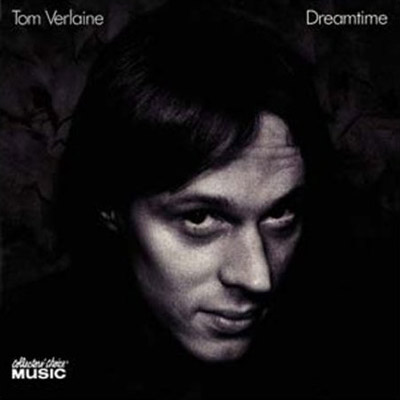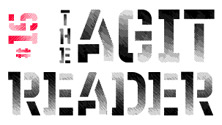
Dreamtime
Words From the Front
Collector’s Choice
Though it seems ages ago, it isn’t that far in the past that a musician was perhaps capable of making a career from recording. Record labels were interested in sustaining a roster of artists selling a modest amount of albums, even if those artists’ heydays or time as next big things might have been behind them.
Such was the case when Tom Verlaine, singer and guitarist for Television, struck out on his own after that group disintegrated in 1978. After a self-titled solo debut for Elekra in 1979, he signed with Warner Bros. for whom he made a pair of albums that, though vastly different, were both artistically challenging. It seems unheard of these days that a major would have been interested in Verlaine—he probably would have been relegated to Sanctuary or Anti or to releasing records himself—but those were different times.
Neither record was particularly commercially successful when released, and in the years since have mostly been overlooked, even when staring out from the used bins for cheap prices. So with their recent reissues by Collector’s Choice, re-evaluation is in order.
Verlaine’s sophomore solo album, Dreamtime, originally released in 1981, was recorded in two sessions, the first with Television bassist Fred Smith and Patti Smith’s drummer Jay Dee Daugherty and the second with Donnie Nossov (John Waite, Pat Benatar, Lita Ford) handling bass duties and Rich Teeter (The Dictators, Twisted Sister) on drums. Session guitarist Ritchie Fliegler was Verlaine’s main collaborator, contributing to both sessions, as did keyboardist Bruce Brody, also of the Patti Smith Group.
What resulted was perhaps Verlaine’s finest longplayer since Marquee Moon. Verlaine galvanized the sessions to create a record that echoes his best work without sounding redundant. Dreamtime is stocked with his distinctive, sinewy guitar work and teetering yowl. Leadoff cut “There’s a Reason” is particularly potent, ringing guitars clanging off juxtaposed beats. “Down on the Farm,” recalls “Little Johnny Jewel,” building in momentum at a slow pace, while “A Future in Noise” works off a syncopated riff in angular directions. The ignoring of the record seems unwarranted, like snuffing low-hanging fruit.
For 1982’s Word from the Front, Verlaine moved onto new collaborator, enlisting sessionman Jimmy Rip, who would become Verlaine’s principal collaborator to this day. Rip in turn introduced Verlaine to his rhythm section Tommy Price and Joe Vasta, borrowed from Mink Deville.
The album is unlike anything Verlaine had done to this point, and indeed, remains an idiosyncratic document in his catalog. It’s not an entirely successful one, though. “Present Arrived” mines a repetitive groove that’s a bit too monotonous. “Postcrad from Waterloo” is slightly better, spry guitar lines mixing with a jaunty beat into a breezy pop song. “Coming Apart” also works well a trenchant guitar rhythm leading Verlaine’s most overt, rockist attempt. But it’s the finale of “Days on the Mountain” that distinguishes the record. Over the stretch of nearly nine minutes, Verlaine explores a blend of gothic atmospherics and Eno-style ambiance. Ambitious, to say the least.
What both of these albums show is an artist stretching his wings when given the funds to do so. Though neither is necessarily a seminal work, their very existence makes the world or more interesting place. It’s too bad that record company goals these days are strictly monetary.
Stephen Slaybaugh
PAST PERFECTS
Licorice Roots, Melodeon
Another State of Mind
Delicious Vinyl All-Stars, Rmxxology
Felt, Crumbling the Antiseptic Beauty
Siltbreeze's Tard & Further'd
U2, Boy, October and War
Teenage Jesus and the Jerks, Beirut Slump/
Shut Up and Bleed
Black Sabbath, The Rules of Hell
David Bowie, Live Santa Monica '72
Children of the Sixth Root Race, Songs from the Source
Blondie, Parallel Lines Deluxe Collector's Edition
Mogwai, Young Team
Steinski, What Does It All Mean?
